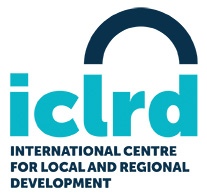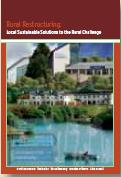no images were found
The Conference Programme is available here.
ICLRD hosted a very successful and engaging conference on rural development strategies, Rural Restructuring: Local Sustainable Solutions to the Rural Challenge on Friday, 8 May at the Blackwater Learning Centre in Emyvale, Co. Monaghan.
There is growing recognition that rural areas – and their balanced development – are an important policy area in their own right; and that the current political climate facilitates the development of rural communities on a North, South and cross-border basis. The conference brought together 115 delegates and speakers from community and local development agencies, local government officials, businesses and business networks, practitioners, policy makers and academics for a one day event.
Conference Presentations
ICLRD Presentation
Rural Restructuring: Local Sustainable Solutions to the Rural Challenge – ICLRD Research Team
Keynote Address
Bucking the Trend – The ‘Local’ as Centres of Rural Growth and Development – Roger Turner
Workshop 1: Rural Economic Diversification
Workspace – Adopting an Economic Model to Local Community Development – Brian Murray
Innovation and Business Clustering: A Case Study of the Irish Furniture Industry – Dr. Kevin Heanue
Workshop 2: Unleashing Local Potential by Building on a Rural Area’s Asset Base
Developing a Strategic Vision and Translating this into an Action Plan – Maura Walsh
Realising Asset-Based Development and Local Potentiality: The Petal Model – Geoff Brown
Workshop 3: The Impact of Government Policy on Rural Development
Planning for Rural Development – A New Emphasis – Zita Murphy
Learning from Experience: Mainstreaming Sustainable Development Practice – Declan Nelson
Workshop 4: Approaches to Rural Restrucutring
Nature and Sustainability in Rural Communities – Peter Carvill
The Role of Education in Rural Restructuring – Kate Clifford
Closing Address – Peter Quinn
The publication of the research report, Rural Restructuring: Local Sustainable Solutions to the Rural Challenge, is the culmination of a twelve-month research programme into sustainable rural development across the island of Ireland; with a particular focus on economic diversification, spatial planning and rural communities. Standing – left to right: Dr. Neale Blair, University of Ulster; Caroline Creamer, NIRSA, NUI Maynooth; John Driscoll, Director, ICLRD and Andy Pollak, Director, Centre for Cross Border Studies; Sitting – Left to right: Dr. Karen Keaveney, Queens University Belfast; Minister Michelle Gildernew; Dr. Brendan O’Keeffe, Mary Immaculate College, University of Limerick The overall theme of this study was to consider the impact of economic re-structuring on rural areas together with the opportunities for diversification including micro-enterprise development, business clustering, joint marketing and branding. In the context of a changing policy environment and challenging economic times, the report considers the opportunities that can be made available by adopting a local asset-based approach to rural restructuring and diversification.
Working closely with a committee including representatives from the three case study areas of Draperstown, Emyvale-Truagh-Aughnacloy and Duhallow, the study team interviewed over 80 people and conducted a number of focus groups. In addition, the ICLRD hosted a very successful and engaging conference – attended by over 110 people – on rural development strategies, Rural Restructuring: Local Sustainable Solutions to the Rural Challenge, on Friday, 8 May at the Blackwater Learning Centre in Emyvale, Co. Monaghan. Those participating in the study noted that rural areas are well-positioned to adapt to changing demands even during an international recession given their traditional reliance on small-scale businesses.
This report, which was guided by a high-level independent Advisory Committee involving representatives from central and regional government on both sides of the Border, captures many of the features, successes and challenges associated with rural restructuring and territorial cooperation. It provides insights and recommendations on future local governance arrangements, the need for local responses to economic decline, and the opportunities for incorporating innovations and good practice into future partnerships. The report also emphasises the role of collaborative spatial planning in addressing the needs of both rural and urban communities which are increasingly inter-connected in a globalised economy. Specifically, the report recommends the establishment of a sub-regional civil society forum, the extension of business networks – using the Business Innovation Centre (BIC) model – across the island of Ireland, and the need for a strategic vision set within a top-down framework and delivered through partnership at local level.

